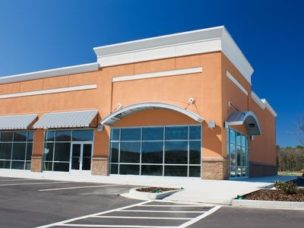Stay in the know
Subscribe to the Real Estate Blog and we’ll send you an email each time something new is posted.
Subscribe to the Real Estate Blog and we’ll send you an email each time something new is posted.
Blogs
Real Estate Blog
Legislation Resolves Problems Affecting Commercial Leases Created By 2011 SJC Decision – Bishop v. TES Realty Trust
Marking the successful conclusion of a campaign spearheaded by the ICSC Massachusetts Government Relations Committee, of which Sherin and Lodgen LLP lawyer Joshua M. Bowman is an active participant, on August 7, 2012, Governor Deval Patrick signed legislation that restored a basic legal principle that commercial landlords and tenants in Massachusetts had long taken as gospel – that a commercial tenant has the legal right to assume sole responsibility for the maintenance and repair of a leased premises pursuant to a written lease.
The legislation became necessary after the 2011 SJC decision of Bishop v. TES Realty Trust, 459 Mass. 9 (2011), which, to the shock of many commercial real estate professionals, interpreted M.G.L. c. 186, §19 as prohibiting commercial landlords and tenants from agreeing that a commercial tenant may be solely responsible for correcting unsafe conditions in a leased premises in situations where the landlord is given written notice of an unsafe condition which was not caused by the tenant.
For decades, Massachusetts law (under Young v. Garwacki, 380 Mass. 162 (1980)) has imposed a duty on residential landlords to protect residential tenants (and their invitees at the leased premises) from “unreasonable risk of harm”, even without an express written agreement on such matter. However, Bishop v. TES Realty Trust was the first time that the SJC held that a statutory duty of maintenance and repair may be imposed on a commercial landlord, even if such obligations had clearly been assumed by a commercial tenant pursuant to a signed lease. By adding just three words to M.G.L. c. 186, § 19 (“for residential use”), the new legislation (Section 54 of Chapter 238 of the Acts of 2012 – the “2012 Economic Development Act”) once again allows commercial landlords and tenants to decide for themselves, pursuant to a written lease, which party is best situated to maintain the condition and repair of a leased premises.
For commercial landlords and tenants, especially those with existing “triple net” leases, ground leases and leases for unique and specialized spaces (such as R&D or medical office space), the legislation is a victory. The legislation also represents a major achievement for the ICSC Massachusetts Governmental Relations Committee and its members and supporters, who were instrumental in identifying the problems caused by Bishop v. TES Realty Trust and developing and implementing the necessary legislative fix, which included sustained outreach to several state legislators and providing feedback on the proposed legislative language.




